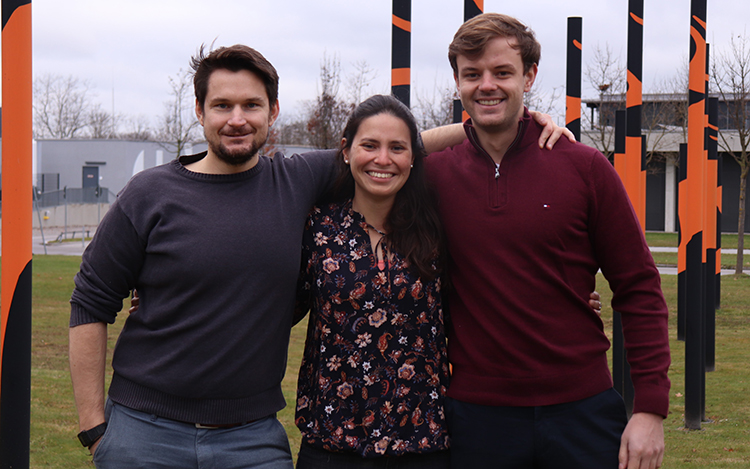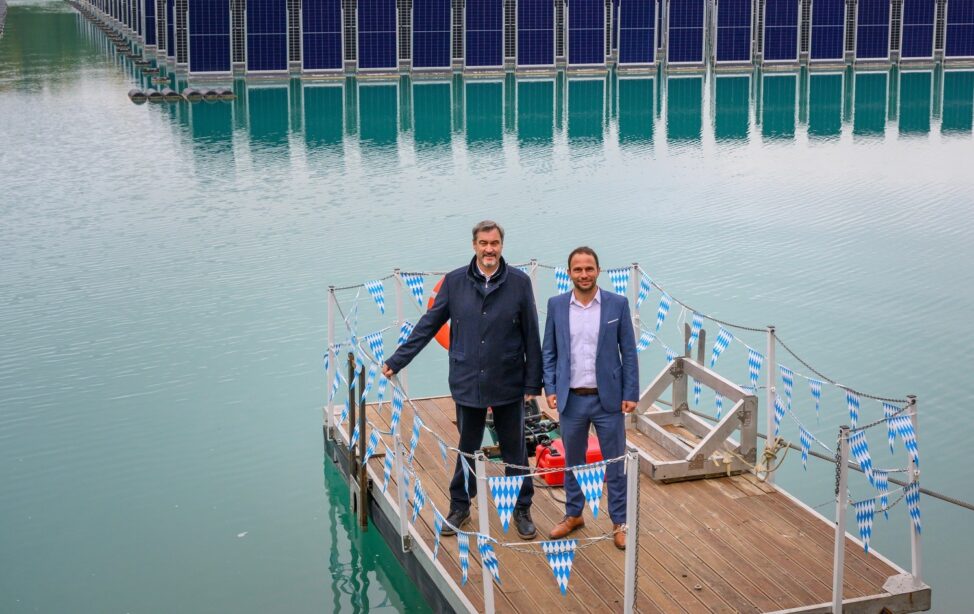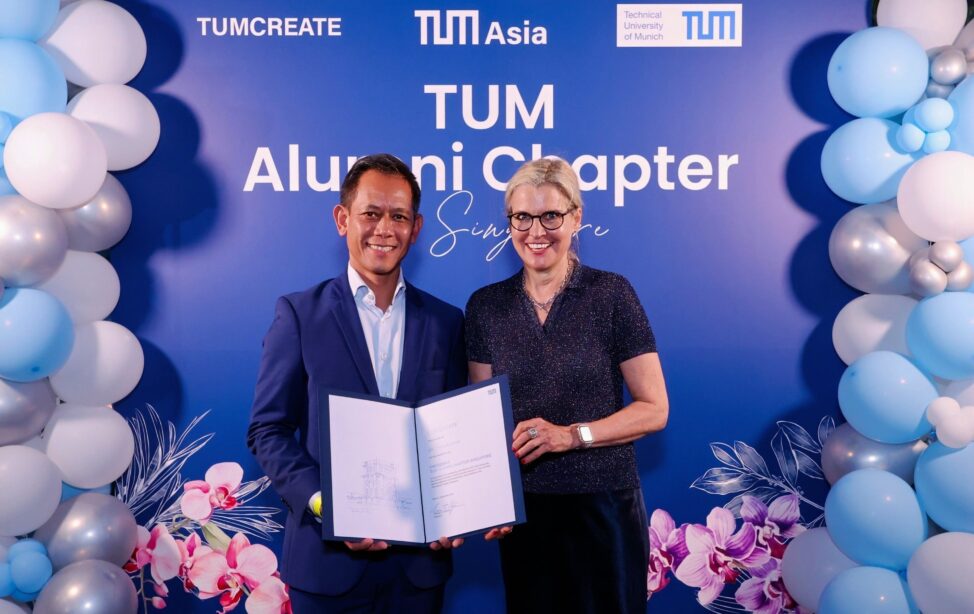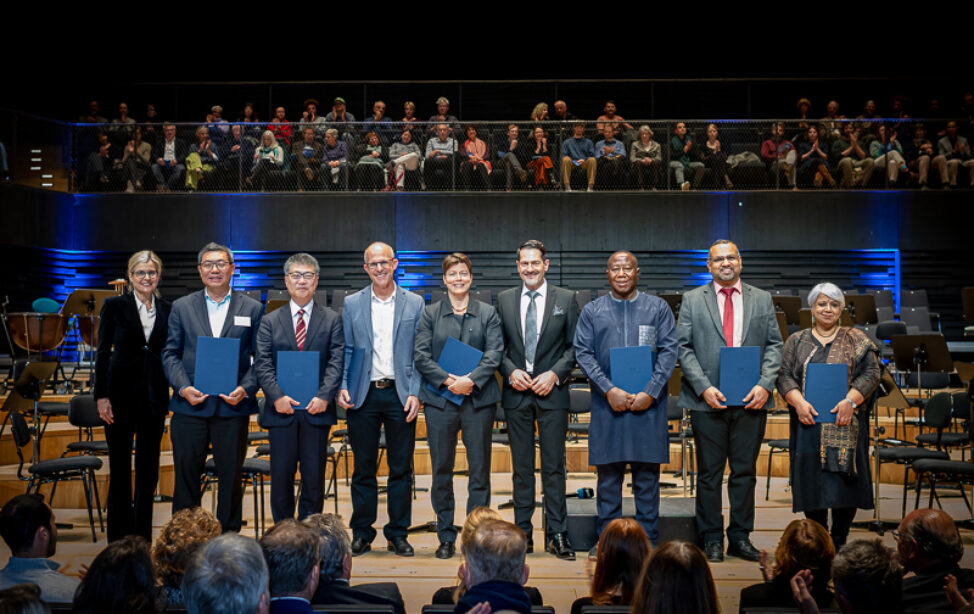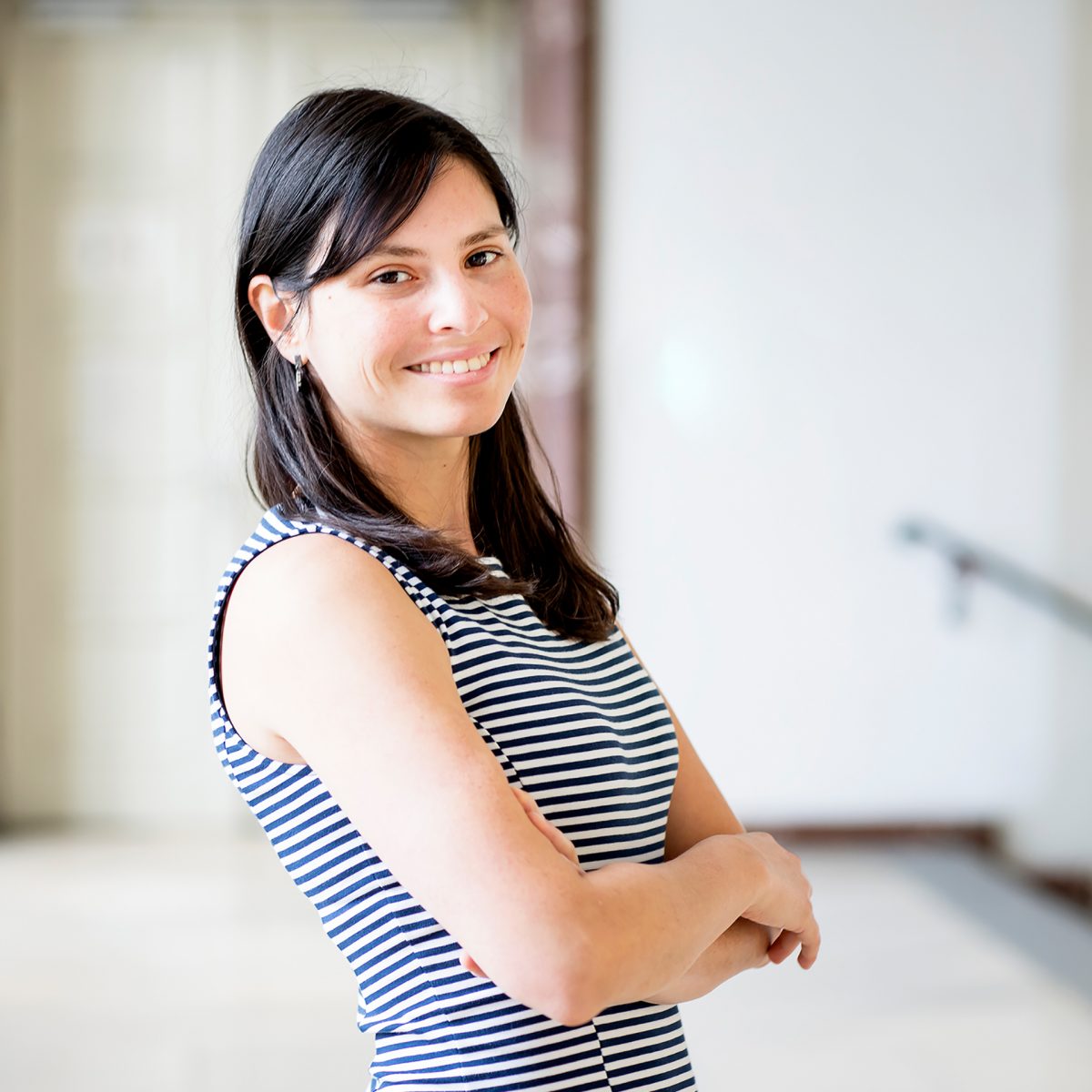
Sofía Ramírez Bernini (Picture: Magdalena Jooß/TUM).
“The Passion for the Idea Has to Always Be Greater than the Fear of the Risk”
ANYTHING IS POSSIBLE
Even as a child, Sofía Ramírez Bernini wanted to understand the world in its fundamental relationships. She wanted to study Physics, and she wanted to study it in Munich. From a school exchange, she already knew the Bavarian capital. Above all, she was drawn to the centuries-old architecture and the proximity to the mountains. So she decided to study Engineering Physics/Applied Physics at TUM. However, right from the start she knew that she would not pursue a career in science. Sofía Ramírez Bernini is a doer. Like her father and her two uncles, she wanted to become an entrepreneur.
Studying at TUM instilled in me the confidence that it is possible to get familiar with almost anything.
SUSTAINABLE CARBON KILLER
This realization and their shared interest in sustainability led Sofía Ramírez Bernini and two of her colleagues from the Hyperloop team, Joachim Sturm (Diploma Aerospace 2012) and Tim Simon Klose (Bachelor Aerospace, Aeronautical and Astronautical Engineering 2019) to set up their own business in 2022.
Sofía Ramírez Bernini and her co-founders seem to have found a way out of this dilemma with the technology that they want to develop. They familiarized themselves with the new field from scratch, researching, analyzing and calculating – and were finally able to identify macroalgae as the ideal carbon killer: These grow sustainably in the ocean and could absorb nearly two gigatons of carbon dioxide per year. If algae were used to produce biogas, which would then be used to generate electricity, the result would be carbon-negative energy.
PERFECT SETTING FOR DEVELOPMENT
In order to be able to turn their ambitious project into reality, the founding team needs expert support. UnternehmerTUM offered them access to personalized coaching, start-up advice and financial support. And the TUM Venture Lab Food/Agro/Biotech supports them both intellectually and with an extensive infrastructure of laboratories and technical equipment. As centers for business innovation, the TUM Venture Labs promote spin-offs at the interfaces of Engineering, the Natural and Life Sciences, AI/IT, and Medicine with a wide range of support.
Since the year she launched her company, Sofía Ramírez Bernini has been working as Operations Manager for the TUM Venture Labs herself. She hopes to encourage other founders to follow their intuition, too. “The passion for a start-up idea has to always be greater than the fear of the risk,” she says. “And if you do happen to fail, you’ll have learned something new.”
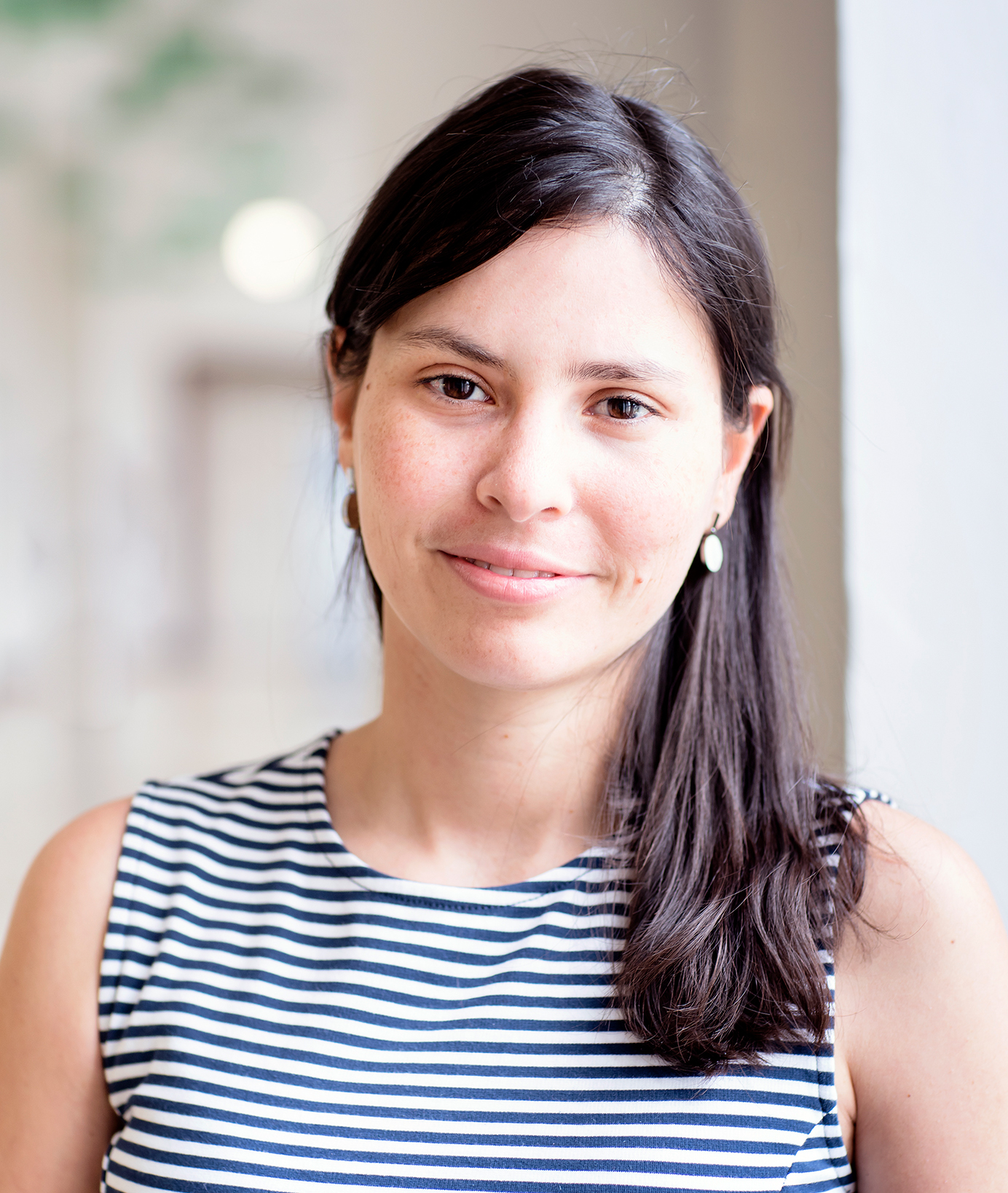
Sofía Ramírez Bernini (Picture: Magdalena Jooß/TUM).
Master Engineering Physics/Applied Physics 2015
A native to Costa Rica, she earned a Bachelor’s and Master’s degree in Physics from TUM. During her studies, she joined the student initiative WARR Hyperloop. It had been launched at TUM to participate in Elon Musk’s SpaceX Hyperloop Pod Competition. The students taking part in the initiative were able to win all four Hyperloop competitions in a row, reaching top speeds of up to 467 km/h with the 80-kg pod they developed.
With Joachim Sturm and Tim Simon Klose, colleagues from the TUM Hyperloop project, she co-founded the start-up 1point8 in 2022. The three TUM Alumni want to develop technologies that have the potential to absorb carbon dioxide at gigaton level and generate carbon-negative energy.
In her free time, Sofía Ramírez Bernini likes to play the violin or soak up the great outdoors around Munich.
